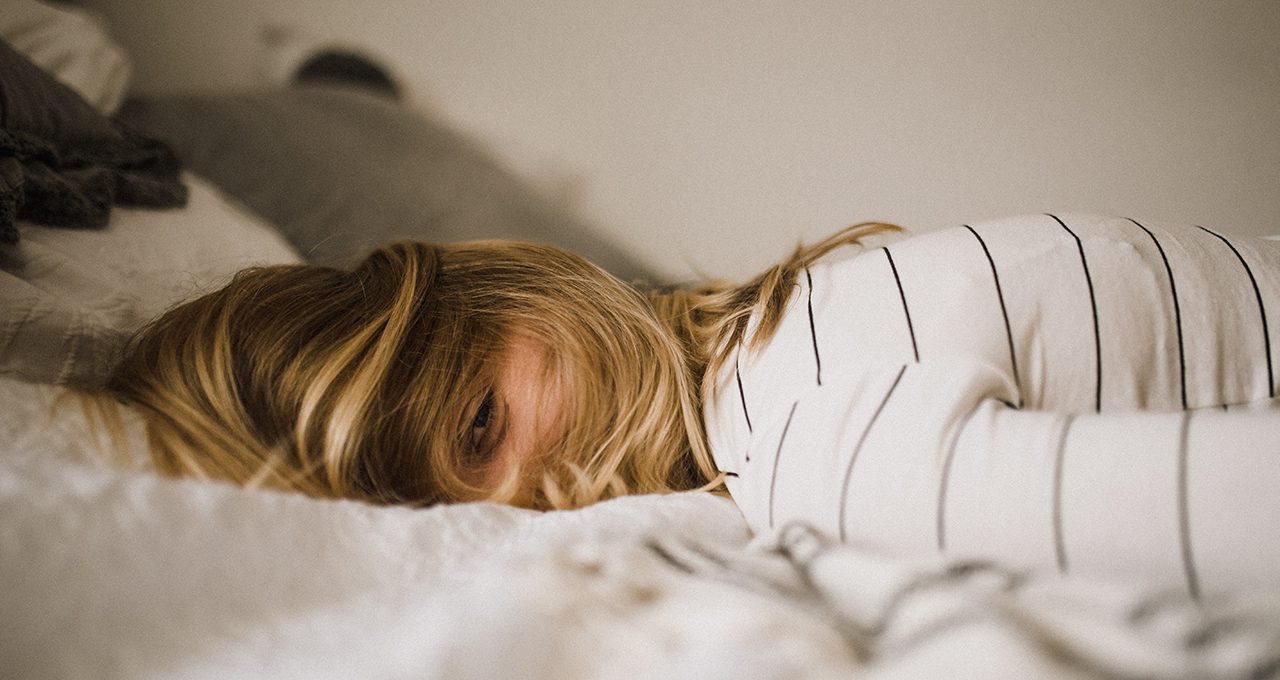Depression and insomnia are closely linked. For example, people with insomnia have a higher risk of depression than those who sleep well at night.
But it begs us to ask: How are depression and insomnia? Either one can be the initiator of a poor night’s sleep. On one hand, poor sleep makes it difficult to regulate emotions, leaving you vulnerable and cranky. Then, on the other hand, depression itself creates more sleep problems. So, when you can’t sleep because of your depression, your mood suffers even more, and you soon find yourself in a vicious circle.
If you are suffering from depression, stress- such as a jam-packed commute, financial worries, or an argument with your spouse- can cause sleep disruptions and even keep you from getting back to sleep, which can’t be said for someone who doesn’t experience depression.
So, it leads us to say that insomnia can be one of the biggest signs of depression. Of course, lack of sleep is not the only factor contributing to depression, but it does play a vital role. That’s why we prioritize rest and sleep along with your neurofeedback training here at Grey Matters of Carmel. But, we also find it helpful to discuss the links between depression and your poor night’s rest.
What causes depression?
No one has been able to find out the exact reason for depression, but there are several factors linked to it, including:
- Alcohol or drug abuse.
- Mental and physical health disorders.
- Poor diet.
- Family history of mental disorders.
- Environment- Living somewhere which is grey and cloudy.
- Stress.
- Abnormalities in the brain.
- Lack of support from loved ones.
Identifying and comprehending the relationship between depression and insomnia will help you get the right help by spotting risks early on. Also, knowing the signs of when you might be experiencing depression can help you seek out the right treatment and recover more quickly. Still, it’s important to note that depression affects everyone differently, and so it also affects how we train your brain.
What Causes Insomnia?
Insomnia affects nearly 35% of adults, so you can bet that there’s no one clear answer to this question. While the sleeping disorder is often associated with depression and other mental health disorders, it can have other causes.
These include:
- Physical illness and pain.
- Neurological problems.
- Other sleep disorders.
- Irregular sleeping patterns.
- Poor sleeping habits.
Way’s to Combat Depression and Insomnia
Take Sleep Problems Seriously
It’s not unheard of to get a terrible night’s sleep every once in a while, especially if you’re under stress or going through a change in life. Still, a countless string of bad nights is something you should address.
Inform your doctor if you:
-
- Feel tired during the day.
- Have trouble staying or falling asleep.
- Have discomfort or physical pain that prevents you from getting good sleep.
What can help you sleep better?
Here are some tips to improve sleep:
-
- Stay consistent with a sleep schedule and routine.
- Use the bed only to sleep.
- Minimize caffeine intake.
- Be physically active.
- Improve your sleep surroundings.
- Limit daytime naps.
- Quit tobacco.
- Avoid sleeping pills.
- Take a relaxing shower or bath.
- Get a comfortable pillow, bed, and mattress.
- Meditate or read a book before bed.
Exercise Regularly
When you take time to care for your physical health, your mental health benefits. That’s why physical activity is so important. When you work out, walk, or simply get your body moving, your brain releases a flood of endorphins. Not only does this hormone make you feel happy, but it also helps relieve pain and reduces stress.
What are some examples of exercise that help improve sleep?
-
- Cardio, such as walking or jogging.
- Yoga or pilates.
- Weight lifting or strength training.
- HIIT or other high-intensity exercises.
Get Outside
Being outdoors and in nature has been shown to improve our mood greatly. But, when you’re living with depression, it can be hard to pull yourself out of the house or even out of bed. However, we encourage you to fight that feeling and get outside! Sunlight is a great source of vitamin D, which helps enhance your mood.
How can I enjoy the outdoors?
-
- Walk the dog.
- Walk through a nature preserve.
- Play in the yard with the kids or the dog.
- Sit outside and read a book.
- Drink your morning coffee outside.
Come to Us for Help
Improvement in sleep is one of the first things our patients experience. When we calm the sympathetic nervous system using neurofeedback, your brain can relax and focus on filing information away correctly where it needs to go. Neurofeedback training also helps correct the neural pathways that are leading to your symptoms of depression, thus improving how you feel and function throughout the day. Still, that’s not all we do here at Grey Matters of Carmel. We also help patients living with intense migraines, crippling anxiety, and unfathomable PTSD.
We’re currently taking new patients, so if you’d like to find out how neurofeedback works and what it can do for you, call our office to schedule your free consultation appointment.
Photo by Kinga Cichewicz on Unsplash


